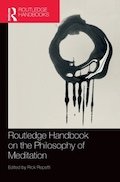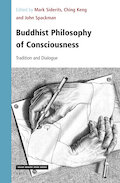Research Interests
Christian works in the fields of philosophy of mind, phenomenology, and cross-cultural philosophy, especially Indian and Buddhist philosophy in dialogue with Western philosophy and cognitive science. Some of his most recent work focuses on questions about the persistence of subjectivity in non-ordinary and pathological states of consciousness, the problem of AI consciousness, mental causation, and classical and contemporary accounts of the nature and scope of self-knowledge.. He is also interested in issues in moral psychology concerning empathy and evolution, and agency and responsibility. He is the author of Perceiving Reality: Consciousness, Intentionality, and Cognition in Buddhist Philosophy (OUP, 2012) and editor of Reasons and Empty Persons: Mind, Metaphysics, and Morality (Springer 2023). In Perceiving Reality, he develops a cosmopolitan perspective on philosophy of mind, exploring the contribution of Indian Buddhist philosophy to contemporary discussions of intentionality, self-consciousness, and conceptual content. Christian has directed (with Jay Garfield and Evan Thompson) two NEH Summer Institutes on cross-cultural approaches to philosophy of mind: the first, in 2012, on various approaches to cross-cultural philosophy of mind, and the second, in 2018, on self-knowledge. Christian is currently working on a second monograph on epistemic feelings, tentatively titled Sense, Self-Awareness, and Subjectivity, and on an introduction to Buddhist philosophy of mind, titled Moments of Consciousness (currently under contract with OUP) (Follow this link for my CV).
RECENT PAPERS
Also available on PhilPapers (see also my profile on PhilPeople).
The articles posted here are for individual, noncommericial use only, and may not be reposted or disseminated without the permission of the copyight holder. Copyright holders retain all rights as indicated within each article.
2024
“Can There Be Something It Is Like To Be No One”, Journal of Consciousness Studies, 31 (5-6): 62–103.
“Is Subjectless Consciousness Possible?” Journal of Consciousness Studies 31 (5-6): 5–26.
“Artificial Minds and the Dilemma of Personal Identity” Philosophy East and West 74 (2): 281–297.
“Know Thy Knowing: On the Reflexive Form of Self-knowledge.” In Crossing the Stream, Leaving the Cave: Buddhist-Platonist Philosophical Inquiries, edited by A. Carpenter and P-J Harter, 167–196. Oxford: Oxford University Press.
2023
“Reason’s Myriad Way: In Praise of Confluence Philosophy”, in Reasons and Empty Persons: Mind, Metaphysics, and Morality: Essay in Honor of Mark Siderits, edited by Christian Coseru, 1–15. Springer.
2022
Consciousness, Physicalism, and the Problem of Mental Causation”, in Cross-Cultural Approaches to Consciousness, edited by Itay Shani and Susanne Kathrin Beiweis, 71–94. London: Bloomsbury.
“Can Global Antirealism withstand the Enactivist Challenge”, Analysis 82 (1):131-142.
“Consciousness, Content, and Cognitive Attenuation: A Neurophenomenological Perspective”, in Routledge Handbook on the Philosophy of Meditation, edited by Rick Repetti, 354–367. London: Routledge.
2021
“The Middle Way to Reality: On Why I Am Not a Buddhist and Other Philosophical Curiosities,”, Sophia 60 (3).
“Whose Consciousness: Reflexivity and the Problem of Self-Knowledge”, in Buddhist Philosophy of Consciousness: Tradition and Dialogue, edited by Mark Siderits, Ching Keng, and John Spackman, Leiden: Brill.
“On Pursuing the Dialogue Between Buddhism and Science in Ways that Distort Neither”, in a symposium on Evan Thompson’s Why I am Not a Buddhist?, APA Asian and Asian-American Philosophers and Philosophies Newsletter, edited by Minh Nguyen, Spring, 2021.
2020
“Consciousness and Causality: Dharmakīrti Against Physicalism”, in Reverberations of Dharmakīrti’s Philosophy: Proceedings of the Fifth International Dharmakīrti Conference Heidelberg, August 26 to 30, 2014, edited by Birgit Kellner, Patrick McAllister, Horst Lasic, and Sara McClintock. Wien: Verlag Der Österreichischen Akademie Der Wissenschaften.
“Free Your Mind: Buddhism, Causality, and the Free Will Problem”, Zygon 55 (2): 1–13.
“Reasons and Conscious Persons”, in Derek Parfit’s Reasons and Persons: An Introduction and Critical Inquiry. edited by Andrea Sauchelli, 160–186. London: Routledge.
2019
“Consciousness, Naturalism, and Human Flourishing”, in Naturalism, Human Flourishing, and Asian Philosophy: Owen Flanagan and Beyond, edited by B. Seok, 113–130. New York: Routledge.
“Presence of Mind: Consciousness and the Sense of Self”, in Problem of the Self: Consciousness, Subjectivity, and the Other, edited by Manidipa Sen, 46–64. Delhi: Aakar Books.
2018
“More or Less Within My Power: Nature, Virtue, and the Modern Stoic,” Reason Papers 40 (2): 8–18.
“On Engaging Buddhism Philosophically”, Sophia 57 (4): 1–11.
"Consciousness and the Mind-Body Problem in Indian Philosophy," in The Routledge Handbook of Consciousness, edited by R. Gennaro, 92-104. London: Routledge.
"Interpretations or Interventions? Indian Philosophy in the Global Cosmopolis", in Routledge History of Indian Philosophy, edited by Purushottama Bilimoria with Amy Reyner, 3–14. London: Routledge.
2017
"Consciousness, Personal Identity, and the Self, No-Self Debate / Soznanie, lichnaya identichnost' i debaty o “ya” /“ne-ya”," Voprosii Filosofii (Problems of Philosophy), Vol. 10: 130–140.
"Are Reasons Causally Relevant for Action? Dharmakīrti and the Embodied Cognition Paradigm", in Buddhist Philosophy: A Comparative Approach, edited by Steven Emmanuel, 109-122. West Sussex: Wiley-Blackwell.
"Breaking Good: Moral Agency, Neuroethics, and the Spontaneity of Compassion", in Jake Davis, ed., A Mirror is for Reflection: Understanding Buddhist Ethics (New York, Oxford University Press, 2017).
2016
"Personal Identity and Cosmopolitan Philosophy", Philosophical Studies,DOI: 10.1007/s11098-016-0829-6, December 2016.
"Freedom from Responsibility: Agent-Neutral Consequentialism and the Bodhisattva Ideal", in Rick Repetti, ed,. Buddhist Perspectives on Free Will: Agentless Agency? (London, Routledge 2016).
"Consciousness and Causal Emergence: Śāntarakṣita Against Physicalism", in Jonardon Ganeri, ed., The Oxford Handbook of Indian Philosophy (Oxford University Press, published online June 2016).
2015
"Précis of Perceiving Reality," Journal of Consciousness Studies 22 (9-10): 9-24.
"Perception, Causally Efficacious Particulars, and the Range of Phenomenal Consciousness: Reply to Commentaries," Journal of Consciousness Studies 22 (9-10): 55-82.
"Taking the Intentionality of Perception Seriously: Why Phenomenology is Inescapable," Philosophy East and West 65 (3): 227-248.
2014
"Buddhism, Comparative Neurophilosophy, and Human Flourishing," Zygon 49 (1): 208-219.
2013
"Reason and Experience in Buddhist Epistemology," in A Companion to Buddhist Philosophy, edited by Steven Emmanuel, 241–255. West Sussex: Wiley-Blackwell.
"Dignāga and Dharmakīrti on Perception and Self-Awareness," in The Buddhist World, edited by John Powers, 526–537. London: Routledge.
2009
"Naturalism and Intentionality: A Buddhist Epistemological Approach," Asian Philosophy, 19 (3): 239–264.
"Buddhist Foundationalism and the Phenomenology of Perception," Philosophy East and West, 59 (4): 409-439.
In press
“On Taking Appearances Seriously: Phenomenology, New Confucianism, and the Yogācāra Theory of Consciousness”, In Subjectivity and Selfhood in Chinese Philosophy: Phenomenological, Comparative, and Historical Perspectives, edited by Ellie Wang and Kai Marchal, Amsterdam: Amsterdam University Press.
BooK Reviews
"Selves: Subpersonal, Immersed, and Participating: A Review Essay of Jonardon Ganeri, The Self: Naturalism, Consciousness, and the First Person Stance," Phenomenology and the Cognitive Sciences.
Review of Owen Flanagan, The Bodhisattva's Brain: Buddhism Naturalized, Notre Dame Philosophical Reviews (2012.01.06).
Review of Simon P. James, Zen Buddhism and Environmental Ethics, Sophia (April 2008) 47, 1: 75-77.
Review of David E. Cooper and Simon P. James, Buddhism, Virtue, and Environment, Sophia (July 2007) 46, 2: 207-209.















